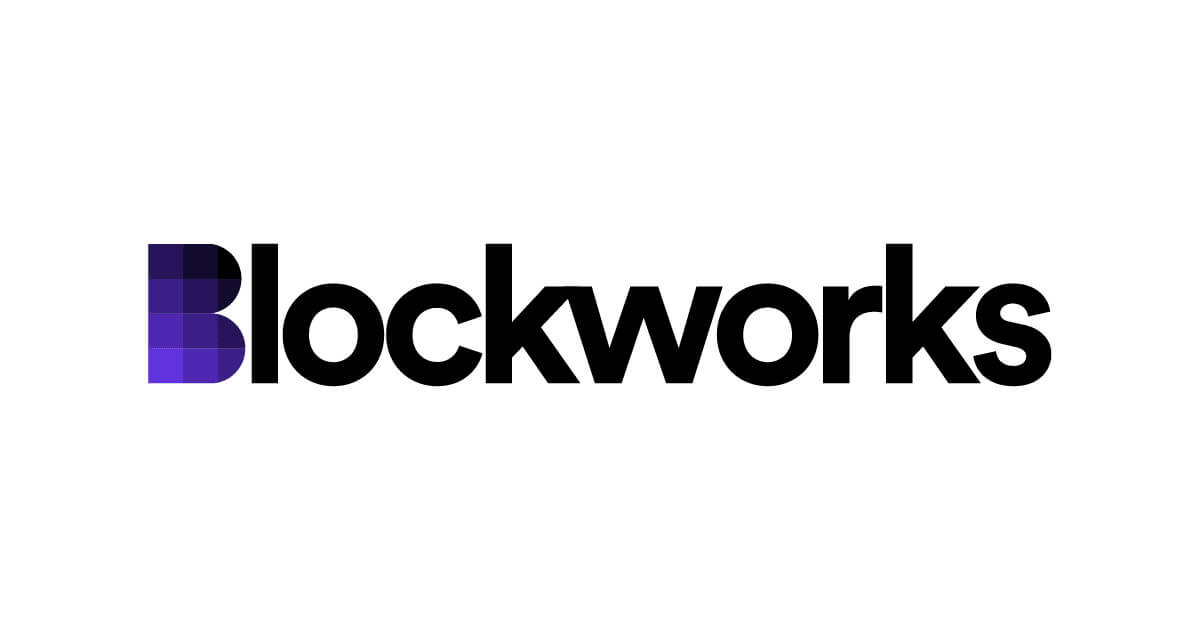
- Phishing scammers have employed sophisticated tactics, cloning the websites of trusted cryptocurrency platforms.
- The intricate scheme involved a fabricated news report on a fake Blockworks website, directing users to a counterfeit Etherscan site.
- Web3 anti-scam initiatives underscore the importance of collaborative efforts in safeguarding the cryptocurrency community against evolving online threats.
Phishing scammers have recently executed a sophisticated scheme targeting users of the prominent cryptocurrency media outlet Blockworks and the Ethereum blockchain scanner Etherscan. The elaborate ploy involves replicating the websites of these trusted platforms, intending to deceive unsuspecting readers into engaging with a crypto-draining mechanism. Furthermore, the intricate nature of the fraud underscores the increasingly complex landscape of digital security threats in cryptocurrency.
One of the critical elements of this deceptive operation is creating a counterfeit version of the Blockworks website, complete with a fabricated “BREAKING” news report. This falsified article purports to unveil a purported multimillion-dollar “approvals exploit” within the decentralized exchange Uniswap.
Moreover, by leveraging the credibility of Blockworks, the scam prompts users to visit a forged Etherscan website under the guise of providing a means to rescind the alleged approvals. The intricate web of deceit woven by scammers seeks to exploit users’ trust in established platforms, making the fraudulent scheme all the more insidious.
READ: Stablecoins empowering Africa’s economic growth amid currencies’ depreciation
Further complicating the situation, the scammers employed seemingly compromised Reddit accounts to disseminate the counterfeit Uniswap news article across various popular subreddits dedicated to cryptocurrency. Using compromised accounts adds a layer of camouflage to the ruse, potentially leading unsuspecting readers to lower their guard, given the perceived endorsement by trusted community members.
The deceptive Etherscan platform, masquerading as a legitimate service, purportedly offers users a tool for checking token and smart contract approvals. However, upon visiting the site, users are confronted with a devious wallet drainer instead of the expected functionality.
Blockchain security firm Beosin conducted a comprehensive analysis of the drainer’s smart contract, uncovering the scammers’ insidious intent to drain wallets containing a minimum of 0.1 Ether, equivalent to approximately $180. The meticulous investigation further revealed an erroneous setup, with no phishing transaction initiated despite users connecting their wallets, indicating sophistication in the scammers’ tactics.
A comprehensive examination of the domains associated with this fraudulent activity exposes the careful orchestration behind the scam. The fake Etherscan site, operating under the domain name approvalscan.io, was registered on the 25th of October, underscoring the recent nature of the scam’s development.
Similarly, the counterfeit Blockworks site utilizes the domain blockworks. Media was registered a day later, further emphasizing the calculated and swift execution of the fraudulent operation. The deliberate timing of the domain registrations underscores the meticulous planning undertaken by the scammers, revealing a sophisticated understanding of the online landscape and user behavior.
READ: Terra Money freezes website in fight against phishing scams
The complex and multifaceted nature of this phishing scam reflects the evolving challenges faced by the cryptocurrency community in safeguarding the integrity of digital platforms. With scammers constantly refining their techniques and leveraging the credibility of reputable outlets, users must remain vigilant and exercise caution when engaging with online resources, particularly in digital finance.
The emergence of such deceptive tactics underscores the critical need for robust security measures and heightened awareness within the cryptocurrency ecosystem, emphasizing the importance of adopting stringent verification processes and implementing comprehensive user education initiatives.
In response to this alarming development, various Web3 anti-scam initiatives have redoubled their efforts to identify and combat fraudulent activities within the cryptocurrency space. Notably, the Web3 anti-scam platform Scam Sniffer took to Twitter on the 25th of October to expose the scammers’ deployment of a wallet drainer on a website masquerading as the reputable crypto news outlet Decrypt.
Moreover, anti-scam platforms’ swift and proactive response demonstrates their concerted efforts to protect users from malicious online threats. It underscores the importance of collaborative initiatives to enhance digital security within the cryptocurrency landscape.
As the cryptocurrency ecosystem continues to expand and evolve, the need for robust security measures and comprehensive user education initiatives becomes increasingly critical. By equipping users with the necessary tools and knowledge to navigate the digital landscape securely, the industry can take significant strides toward mitigating the risks associated with online fraud and deception. Furthermore, fostering a culture of vigilance and proactive engagement among users, industry stakeholders, and regulatory authorities will be essential in creating a safer and more secure environment for all participants within the cryptocurrency community.
- SEO Powered Content & PR Distribution. Get Amplified Today.
- PlatoData.Network Vertical Generative Ai. Empower Yourself. Access Here.
- PlatoAiStream. Web3 Intelligence. Knowledge Amplified. Access Here.
- PlatoESG. Carbon, CleanTech, Energy, Environment, Solar, Waste Management. Access Here.
- PlatoHealth. Biotech and Clinical Trials Intelligence. Access Here.
- Source: https://web3africa.news/2023/11/06/news/sophisticated-phishing-scheme-blockworks-etherscan-users/
- :is
- 1
- a
- Accounts
- across
- activities
- activity
- Adds
- Adopting
- against
- All
- alleged
- Amid
- among
- an
- analysis
- and
- Anti-scam
- approvals
- approximately
- ARE
- article
- AS
- associated
- Authorities
- awareness
- BE
- becomes
- behavior
- behind
- Beosin
- blockchain
- Blockworks
- by
- calculated
- CAN
- careful
- caution
- challenges
- checking
- collaborative
- combat
- community
- complete
- complex
- comprehensive
- Compromised
- concerted
- conducted
- Connecting
- constantly
- continues
- contract
- Counterfeit
- create
- Creating
- Credibility
- critical
- crypto
- Crypto News
- cryptocurrency
- cryptocurrency ecosystem
- Culture
- day
- deceit
- decentralized
- Decentralized Exchange
- deception
- Decrypt
- dedicated
- demonstrates
- deployment
- Despite
- Development
- digital
- Digital Finance
- directing
- domain
- Domain Name
- domains
- drain
- Economic
- Economic growth
- ecosystem
- Education
- efforts
- Elaborate
- elements
- emergence
- emphasizing
- employed
- empowering
- Endorsement..
- engagement
- engaging
- enhance
- Environment
- Equivalent
- essential
- established
- Ether
- ethereum
- Ethereum blockchain
- etherscan
- evolve
- evolving
- exchange
- executed
- execution
- Exercise
- Expand
- expected
- Exploit
- faced
- fake
- falsified
- fight
- finance
- Firm
- For
- forged
- fostering
- fraud
- fraudulent
- fraudulent activity
- from
- functionality
- further
- Furthermore
- given
- Growth
- Guard
- guise
- Have
- heightened
- However
- HTTPS
- identify
- implementing
- importance
- in
- increasingly
- industry
- initiated
- initiatives
- instead
- integrity
- Intending
- intent
- into
- investigation
- involved
- IT
- jpg
- knowledge
- landscape
- later
- layer
- leading
- legitimate
- leveraging
- lower
- Making
- means
- measures
- mechanism
- Media
- Members
- meticulous
- minimum
- mitigating
- money
- more
- multifaceted
- must
- name
- Nature
- Navigate
- necessary
- Need
- news
- no
- notably
- october
- of
- Offers
- on
- online
- operating
- operation
- orchestration
- outlet
- Outlets
- participants
- particularly
- perceived
- phishing
- planning
- platform
- Platforms
- plato
- Plato Data Intelligence
- PlatoData
- Popular
- potentially
- Proactive
- processes
- prominent
- protect
- providing
- readers
- recent
- recently
- refining
- reflects
- registered
- regulatory
- remain
- report
- reputable
- Resources
- response
- Revealed
- revealing
- risks
- robust
- safeguarding
- safer
- Scam
- Scammers
- scheme
- secure
- securely
- security
- Security Measures
- Security threats
- Seeks
- seemingly
- service
- setup
- significant
- site
- situation
- smart
- smart contract
- sophisticated
- sophistication
- Space
- stakeholders
- strides
- stringent
- such
- SWIFT
- tactics
- Take
- targeting
- techniques
- The
- their
- These
- this
- threats
- timing
- to
- token
- took
- tool
- tools
- toward
- transaction
- true
- Trust
- trusted
- under
- underscores
- understanding
- Uniswap
- unveil
- upon
- User
- users
- using
- utilizes
- various
- Verification
- version
- vigilance
- Visit
- Wallet
- Wallets
- was
- web
- Web3
- Website
- websites
- when
- will
- with
- within
- zephyrnet













